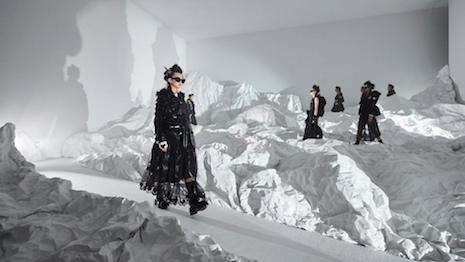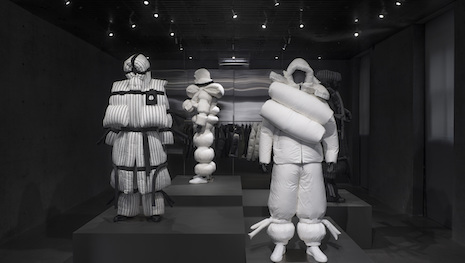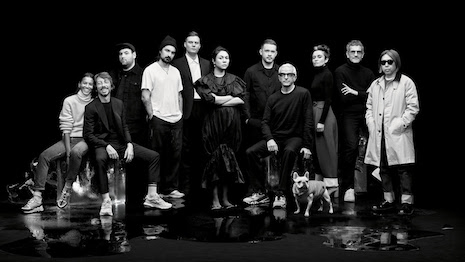 Moncler Genius released eight collections in 2018. Image credit: Moncler
Moncler Genius released eight collections in 2018. Image credit: Moncler
MADRID – French-Italian outerwear label Moncler's CEO believes that adaptability is essential for luxury brands to succeed in today’s rapidly changing fashion environment.
In a dialogue with Financial Times’ Milan correspondent Rachel Sanderson at the FT Business of Luxury Summit on May 20, Remo Ruffini discussed the French-Italian outerwear label’s recent pivots. In particular, the label’s monthly design strategy, Moncler Genius, has emphasized creativity and versatility in new ways.
“Every month we have something to say to the customer, every month we have a new product, a new idea,” Mr. Ruffini said. “I don’t know if it’s the right strategy, but at the moment I’m quite happy.”
Genius change
Moncler Genius, which Mr. Ruffini describes as a “joint venture between the designer and the company,” dropped its first collection in June 2018.
“Moncler is basically a startup company since we changed the business,” Mr. Ruffini said. “Every day I find something new to improve our strategy.”
Moncler worked with Ssense for a Genius exhibit. Image credit: Ssense
Moncler Genius replaced the tired seasonal collection strategy with new monthly designs and social media campaigns.
It initially began with a series of guest partnerships including Valentino creative director Pierpaolo Piccioli, stylist Karl Templer and others. Each collection is supported by unique and interesting experiences on social media, but the products themselves focus on quality, uniqueness, newness and creativity (see story).
The change in strategy has been successful thus far, with Moncler Genius being renewed for a second year (see story).
Designers involved with the Genius project have creative freedom, but Mr. Ruffini cautioned that it is important not to betray the label’s roots.
“Our strategy is based on uniqueness,” Mr. Ruffini said. “You need really strong ideas, and a really strong way of talking to people.”
Although Mr. Ruffini pushed the idea of Moncler Genius for some time, it was challenging for the supply chain and logistics departments to shift from a six-month cycle to monthly launches.
However, the CEO felt the move was vital to keep consumers’ attention.
“The world moves so fast,” Mr. Ruffini said. “You have to adapt your strategy basically daily, weekly or monthly.”
Flexibility is also important as the political climate can impact the global luxury business.
Moncler Genius is back for its second year. Image courtesy of Moncler
As Ms. Sanderson remarked, the trade war between the United States and China has recently escalated.
This month, China retaliated after the U.S. raised tariffs on $200 billion worth of Chinese goods. After President Donald Trump decided to raise tariffs on Chinese imports from 10 percent to 25 percent, China raised the rate on imports for $60 billion of U.S. goods to 25 percent (see story).
“The two biggest markets could be 50 to 60 percent of luxury revenue,” Mr. Ruffni said. “It is difficult and you have to be very fast [to keep pace].”
New luxury
Moncler Genius is also an opportunity for the label to engage with younger luxury consumers, who are engaging with high-end brands at growing rates.
“The luxury world is attracting much more people, much more young people,” Mr. Ruffini said.
Recent marketing efforts by Moncler have touched on the diversity that many millennial and Generation Z consumers embrace.
The "Moncler Beyond" initiative featured a variety of influencers and spokesmodels to discuss what the word means to them in a push to celebrate uniqueness and diversity. These men and women were chosen as to share their stories and inspire those who listen, from a variety of countries across the world (see story).
Younger affluents are also looking for luxury brands that share their values on other issues such as sustainability.
Moncler has supported environmental efforts in the past. In 2016, Moncler publicized that it had planted a tree in the name of each of its employees through Treedom, filling out forests in Kenya (see story).
“Sustainability is never finished – every day feels like the first day,” Mr. Ruffini said. “The value it brings to your customer is very important.”

